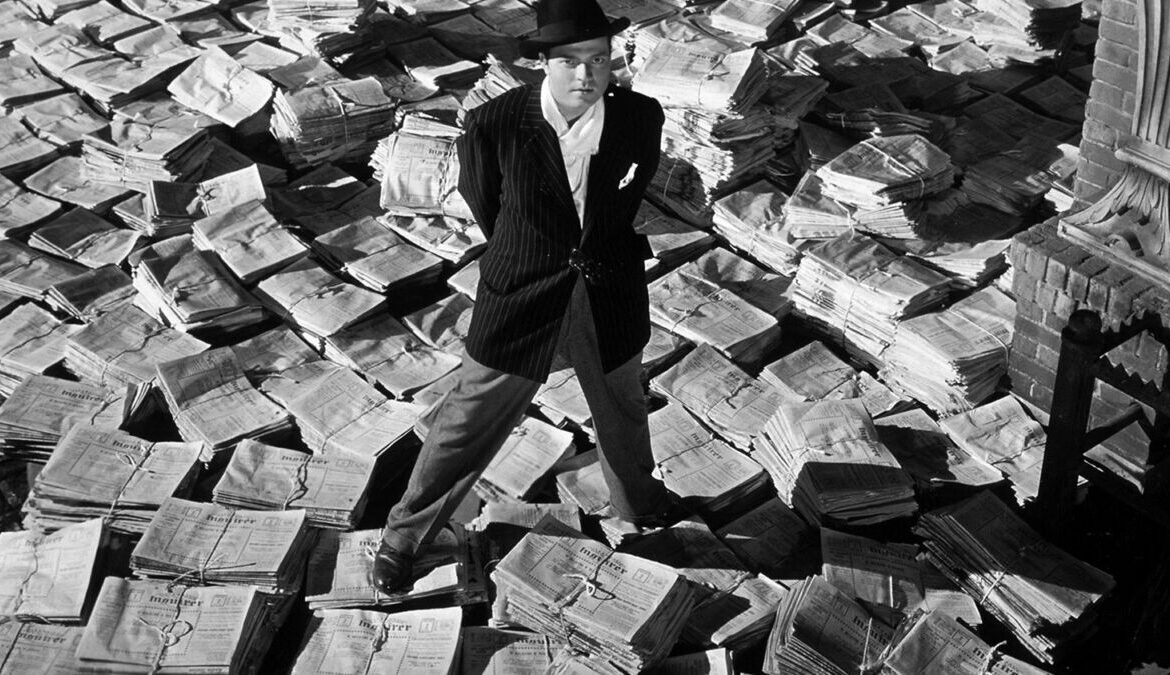Writing about Citizen Kane is a lot like trying to write about Seven Samurai or The Godfather. Galaxies need to be formed to have space enough for the libraries containing only what people have put down in discussion of the greatest movies of all time. Some movies are up for immediate consideration, and Citizen Kane is one of them. Considering how much I love this movie, one of the most popular films ever made (despite not being particularly successful upon release), it was a guarantee that something was going to be written about it.
Because when it comes to this Movies to See Before You Die series we’re doing at Cultured Vultures, we want to make sure we’re covering the essentials. However, in the interest of going our own path, we’re not just adding movies to the list on reputation alone. We know Citizen Kane is almost universally regarded as a masterpiece that is still being screened in theaters around the world 80+ years after its release. It’s in the Criterion Collection. It’s been referenced literally hundreds of times in popular culture. This was a movie I knew through piecemeal, and buckets of Simpsons references, long before I finally watched it for the first time as a teenager, immediately struck by the power of its writing, acting, humor, and the pivotal, electric cinematography of Gregg Toland.
Some movies are so ingrained in culture and conversation, you can sort of watch them without ever actually seeing the movie. Do such films even need champions at that point? I think so. Citizen Kane isn’t just something for an afternoon museum crowd, or the young film student trying to build up a syllabus of works to study. It’s a thinly disguised biopic with seemingly thousands of moments that deviate from not only the normal way of making thinly disguised biopic, but from William Randolph Hearst as the probable inspiration for Welles’ Charles Foster Kane. It’s not a dense, complex film if you don’t want it to be.
Citizen Kane isn’t a must-see because history tells you so. This film is still worth your time if you’re looking simply for a movie that’s well-shot, well-edited (featuring the future director of West Side Story and Star Trek: The Motion Picture Robert Wise), and well-acted, particularly in supporting performances by the likes of Joseph Cotton and Dorothy Comingore. It’s just one of the best movies of its period, very much a product of that time, yet with qualities that are instantly accessible, entertaining, and arguably timeless. A riveting story brilliantly told in a decidedly and specifically cinematic language. Citizen Kane is as simple as that.
What Citizen Kane was not was the sole product of one screenwriter (Mank can go straight to hell, and I have no plans to watch it ever). Nor did it do much for Orson Welles’ career in the sense of giving him a clear path to making the movies he wanted to make. If anything, Welles’ work here as co-writer and director for this story of a newspaper tycoon clearly marked him as a one-hit wonder. As you watch Citizen Kane, keep in mind this just isn’t true. From Macbeth, to Touch of Evil, to F for Fake as the last film this sincere genius completed in his lifetime, Citizen Kane was the only beginning of a difficult, but astonishing career.
If you really want, use Citizen Kane as a jumping point to not only the careers it launched, not just its star and director, but as an unfortunate and unintentional parallel for the path Orson Welles would eventually find himself on.
READ NEXT: 25 Best Japanese Horror Movies of All Time
Some of the coverage you find on Cultured Vultures contains affiliate links, which provide us with small commissions based on purchases made from visiting our site.

![Citizen Kane (The Criterion Collection) [4K UHD]](https://m.media-amazon.com/images/I/31IEVxXyl4L._SL75_.jpg)
